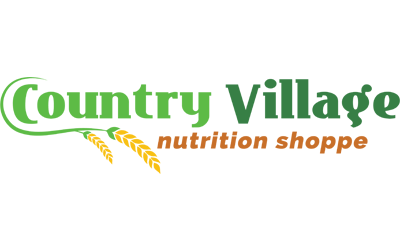Americans pride themselves on being ahead of the rest of the world when it comes to scientific and medical advances, but although the US market for botanicals and herbal medicines is rapidly growing, we’re a couple of centuries behind Europe and many centuries behind Asia.
The fact is, there is great benefit to be reaped from traditional herbal compounds, which once formed the basis of traditional Western medicine.
Herbal Medicine
Herbs and herbal products are considered botanical medicines, as opposed to pharmaceutical medicines (even though many pharmaceuticals, for example, aspirin, were originally plant-based).
Today, single herbs are among the most widely used of all herbal products in this country, much as we’ve come to depend upon a single “magic bullet” pharmaceutical from our medicine cabinet. But we are way behind Europeans and Asians in utilizing the bounty of botanicals to their fullest extent, mainly due to ignorance and lack of information about the benefits (including ease of use) of herbal compounds.
Botanical Balance
Compounding refers to the process of combining various herbs in a balanced formula to treat specific problems, or to act as a whole-body or body-system tonic. Some formulas, particularly Chinese and Ayurvedic ones, have been used for more than a thousand years – quite a testament to their effectiveness.
Unlike “modern” medicine, however, rather than just treating symptoms or a specific disease, the aim of herbal compounding is not only to ease symptoms and “cure” the patient, but also to create a positive change and rebalance the body, so that long-lasting relief can be attained and maintained.
Herbal Compounding is an Art
Many companies take individual herbs known to be effective in heart problems, for example, and then combine them for consumers, taking a “shotgun” approach to formulas. The problem with this is that certain botanicals may not be compatible.
Choosing Herbal Compounds
- Some companies are creating these compounds in their product-development department without benefit of a professional herbalist or healthcare professional.
- They may take whatever herb is “hot” at the moment, and beef it up with another up-and-coming herb, and promote it as a compound, hoping something in there will nail whatever’s ailing the consumer.
- There is a real art to compounding, as the Chinese and Ayurvedic herbal traditions have demonstrated for many centuries.
- In these traditions, compounds have been developed very methodically, starting with a careful diagnosis of the problem and identifying the underlying manifestations of the condition being treated.
- In clinical practice, herbalists and doctors of Oriental medicine tailor each formula to each patient.
- For over-the-counter compounds, preparations are designed to address many aspects of a disease as it affects a larger population.
Common Herbal Combinations
For cardiovascular disease, for example, there are five primary issues, with an herb for each:
- Tonification of the heart (hawthorn)
- Fluid retention (motherwort)
- Stress reduction (zizyphus)
- Blood clots (tienchi ginseng)
- Elevated cholesterol levels (Chinese salvia)
Herbalists and herbal practitioners determine the nature of an individual’s condition, then mix and match herbs to address all the manifestations of the disease.
Besides being chosen for their primary action, some herbs are included because of their secondary and tertiary action. In the example of cardiovascular disease, motherwort (Leonurus cardiaca) has historically been used as a diuretic to treat fluid retention; it promotes circulation, helping to reduce the incidence of blood clots, and also lowering cholesterol.
Adding other herbs that offer different benefits ensures the compound will work for most people most of the time. This provides much more than simple symptomatic relief that may occasionally be found in “shotgun” formulas.
How Safe Are Herbal Remedies?
“Based on published reports, side effects or toxic reactions associated with herbal medicines in any form are rare. . . . Herbal medicines do not present a major problem with regard to toxicity based on a survey of the scientific literature. In fact, of all classes of substances . . . to cause toxicities of sufficient magnitude to be reported in the United States, plants are the least problematic,” reports Norman Farnsworth, PhD.
Farnsworth is a researcher and professor at the University of Illinois, Chicago, where the United States collaborates on medicinal plant research for the World Health Organization (WHO).
Every year approximately 100,000 deaths are attributed to adverse effects of pharmaceutical drugs. But over an eight-year period, the American Association of Poison Control Centers reported only one fatality caused by a dietary supplement – a finding that was later determined to be inaccurate.
Herbal medicines have proven themselves safe and effective over thousands of years, and the majority of our planet’s population uses them regularly (85 percent, according to the WHO).
Note: Do not use herbal compounds in conjunction with pharmaceuticals without the approval of your healthcare provider. Some herbals are so powerful on their own, combining them with a synthetic drug that’s supposed to provide the same action could be dangerous (an anti-coagulant, for instance).
Education & Herbal Compounds
Unfortunately, the burden of learning about herbal compounds is on you, the consumer.
If you don’t have an herbalist to advise you, many health-food retailers are very knowledgeable and can give you a good overview of what’s on their shelves. But they can’t make specific recommendations without risk of violating current government restrictions. He or she can tell you, however, who developed the formula, what kind of experience they have, and which companies have a record of being reliable providers of quality products. Just ask!
Consumers must educate themselves about their conditions and the appropriate herbs and other natural therapies to use. This will ensure the healing potential of botanicals and will truly provide consumers with safe and effective medicines from nature.
For More Information
Looking for a healthcare provider trained in herbal medicine? Contact any of these professional groups:
American Association of Naturopathic Physicians
http://www.naturopathic.org
(206) 298-0125
American Association of Acupuncture and Oriental Medicine
http://www.aaom.org
(610) 266-1433 or toll-free, (888) 500-7999
American Herbalists Guild
www.healthy.net/herbalists
(770) 751-6021

